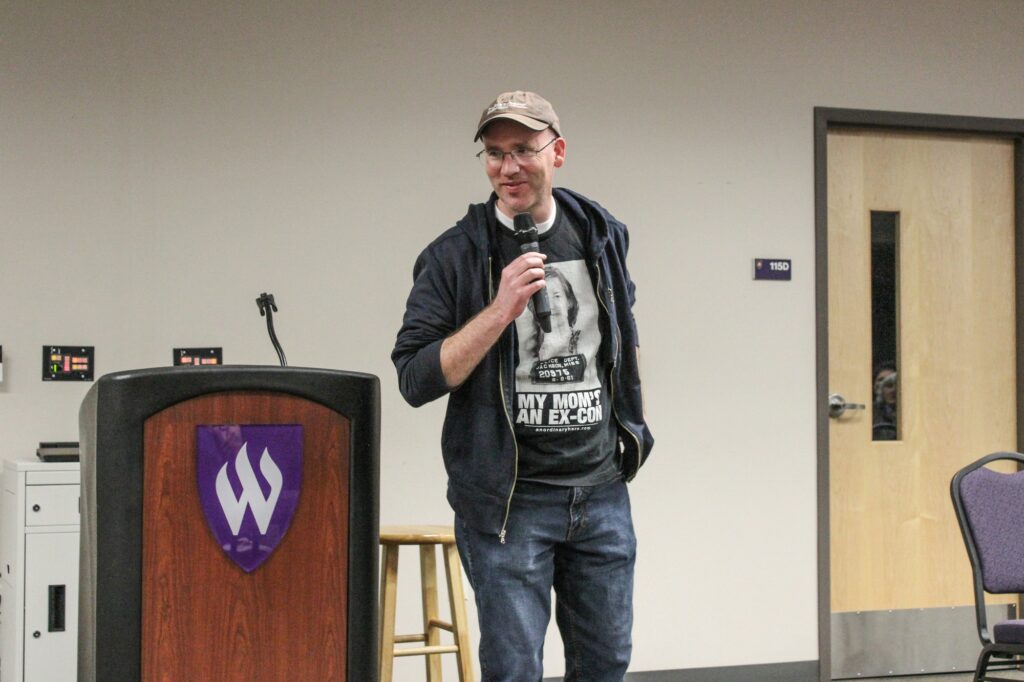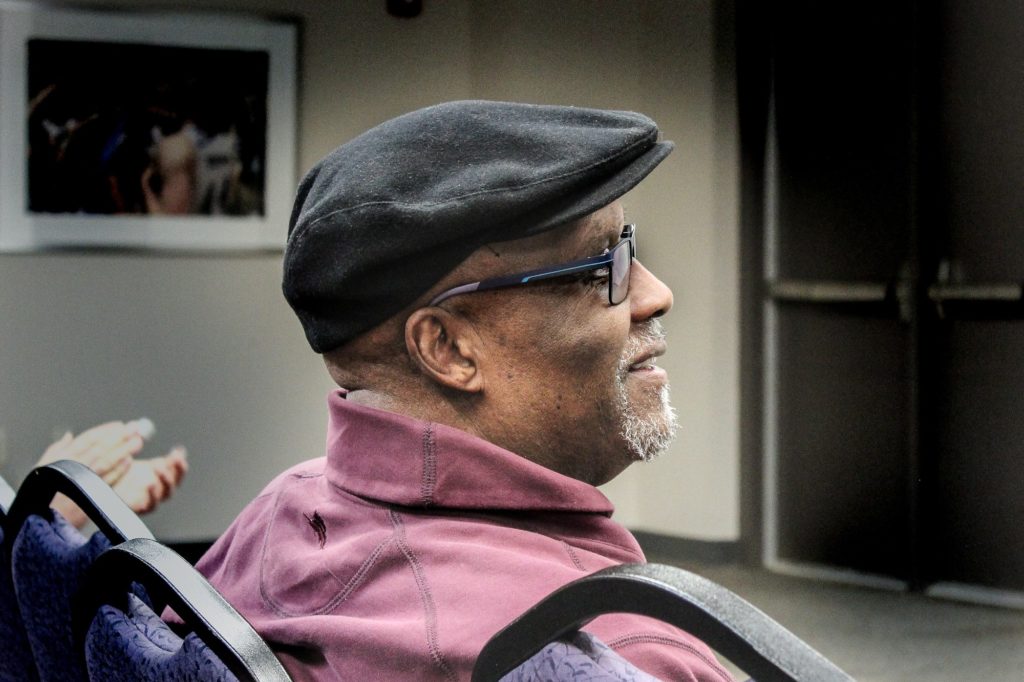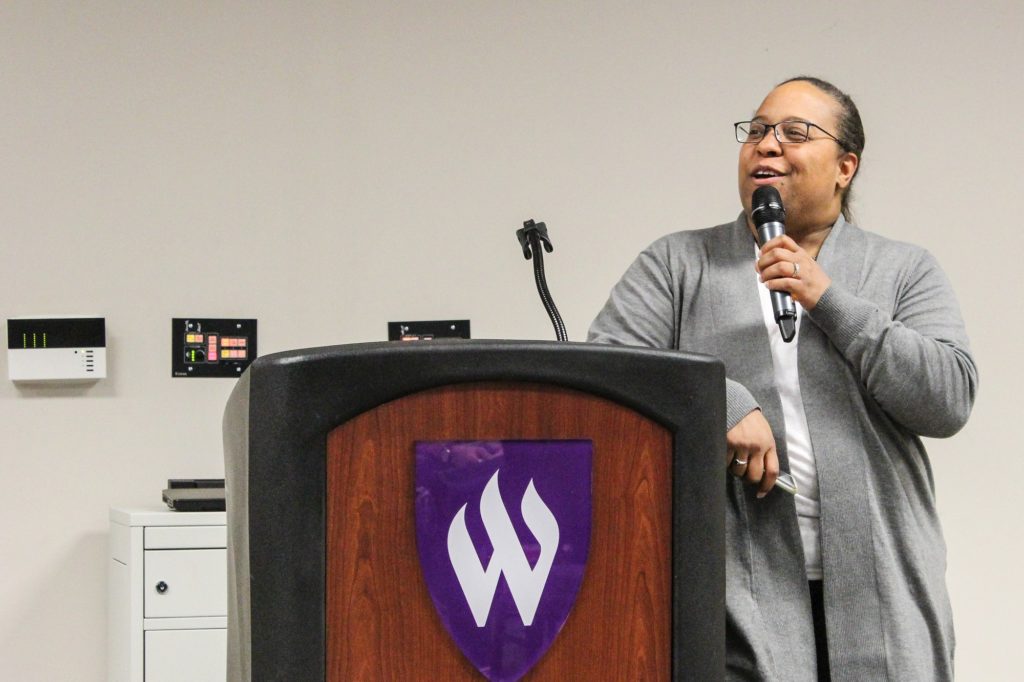In honor of Black History Month, Weber State hosted a film screening and panel discussion on the history of slavery and the problem of racism that continues to exist today in America. Students, along with faculty and members of the community, gathered to hear the message presented on change, transformation and possibility on Feb. 13.

The documentary, called “The Uncomfortable Truth” and made by filmmaker Loki Mulholland, has won five best documentary awards, including the best documentary award presented by the National Black Film Festival.
Mulholland decided to tell his family’s story through making a documentary as a way of inspiring others to take a step back and carefully examine their perceptions, beliefs and culpability in cultivating any racial barriers.
“I did it because I needed to say something. I hope what people get out of it is understanding, and to check their preconceived notions,” Mulholland explained. “Knowledge is power. If they have that knowledge they can actually work on it and that is the first step towards empathy.”
The film confronted many challenges African-Americans faced in the heart of the civil rights movement. Traditionally-held views about American history, segregation and slavery were examined in the documentary, all while it addressed the major issues of racism that have continued to affect our country for years.
“Isn’t it interesting that when you take color out of it, everything is still black and white?” Mulholland explained in the film.
The panel discussion, featuring civil rights activist Luvaghn Brown and Freedom Rider Joan Trumpauer, focused on racism and the ways we can learn to overcome it by working with others.

Brown stressed the importance of talking to people you wouldn’t normally talk to and encouraged the idea of having a conversation with someone who has different views than you.
“Go out tomorrow and look around you and ask, ‘What can I do?'” Brown said. “Just the willingness to act is enough. Do something small if you can’t do something big, but do something.”
Acting out against racism was a common theme of the night. The panelists called for further action from audience members while describing the distance we have achieved so far.
“If we look at how far we’ve come, we’ve still got a long way to go. But we have come a mighty long way to turn back now, so we need to just keep on keepin’ on,” added Trumpauer.
Weber State Student Liberty Lockett, who attended the event, agreed that more action is necessary.
“I do think racism is alive and still out there, people are just better at hiding it,” Lockett said.
Although conversations about race can be difficult to have, Adrienne Andrews, assistant vice president for diversity and the chief diversity officer for the university, explained that they are conversations that need to happen, whether there is agreement on both sides or not.
“We need to hear all of the voices and get to understand where people are coming from and why they see things differently,” Andrews said. “We need to try to see those points of common ground and conversion because they do exist, but you won’t see them until you talk to each other.”

Throughout the night, attendees were encouraged to get out of their comfort zones and go to places that are uncomfortable, to initiate an environment of learning and understanding.
“What’s right and what’s easy are not always the same thing,” Mulholland said. “It’s the willingness to stand up instead of standing back.”
One of the many ways Weber State has helped integrate and bring more diversity to the university is through the creation of Weber State’s “You are Welcome Here” video, which displays institutions across the campus proclaiming a message of welcome to anyone and everyone.
“Students need to know there is a place for everyone here on this campus, and the place that’s for everyone suddenly becomes a place that’s for you too,” said Andrews.
Andrews also explained that the staff and administration at the university are an incredible factor in providing aid and support for students on campus. She described Weber State as, “a place for creating opportunities for learning and engagement, a place where people are willing and committed to making sure that everyone has access to making their dream come true.”
Mulholland reminded participants that there is a place for every person, and each is needed to make our country, homes and even universities better.
“The biggest thing is to find your passion, and then just start doing something. You should be doing it because it’s the right thing to do,” Mulholland said. “Don’t go trying to change the world, just change yours.”



















